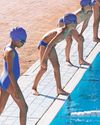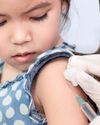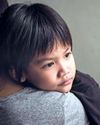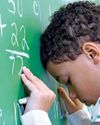Your little one’s forehead feels warm and her cheeks are flushed. Should you call the doctor? Before you start panicking, here’s what you should know about fever in babies and toddlers.

1 It’s not a fever until the thermometer reads 38 deg C.
That is, if you’re going by your baby’s rectal temperature (taken in her bottom), according to the American Academy of Pediatrics (AAP). A body temperature of 38.5 deg C and above is considered a high fever.
The normal body temperature can range from 36.1 to 37.8 deg C, says Dr Leo Deng Jin, an associate consultant at the department of emergency medicine at KK Women’s and Children’s Hospital (KKH). Not only do babies and younger kids have a higher body temperature than adults, it can also vary throughout the day for different reasons, from being over-dressed to the time of the day, experts say.
Even the device and method you use to measure your little one’s temperature can make a difference. For example, a temperature reading taken in the bottom tends to be higher than in the underarm. You may also get slightly higher readings from infrared thermometers compared to electronic ones, Dr Leo says.
2 Rectal readings are the most spot-on.
No one likes sticking a thermometer into their little one’s bottom. But it provides the most accurate readings for babies, particularly those under the age of three months, as well as toddlers up to the age of three, says Dr Michael Wong, deputy medical director at Raffles Medical.
For accuracy, take the temperature twice each time.
Digital ear thermometers, which use infrared rays, aren’t recommended for newborns. They are for babies older than six months, older kids and adults.
Armpit temperatures are the least accurate. And don’t bother feeling your baby’s skin to check if she’s having a fever – it’s not accurate as it depends a lot on your own body temperature, says Dr Wong.
According to him, your child has a fever if her:
This story is from the {{IssueName}} edition of {{MagazineName}}.
Start your 7-day Magzter GOLD free trial to access thousands of curated premium stories, and 9,000+ magazines and newspapers.
Already a subscriber ? Sign In
This story is from the {{IssueName}} edition of {{MagazineName}}.
Start your 7-day Magzter GOLD free trial to access thousands of curated premium stories, and 9,000+ magazines and newspapers.
Already a subscriber? Sign In

Everything You Need To Know About Direct School Admission
If your kid is good at sports, music or has other talents, the DSA programme may be his key to getting into an elite secondary school or specialised school. Here’s what you should know about the process.

What Is The Right CCA For Your Primary School Kid?
Co-curricular activities (CCAs) aren’t just frivolous frills. They teach kids important life skills that can’t be found in a classroom lesson. EVELINE GAN finds out how to select the right one for your child.

Why You Shouldn't Let PSLE Stress Take Over Your Kid's Life
PSLE preparations start in Primary 5, which means a high-pressure two years for your family. Here's how to support your child so they can do their best.

Should Your Kid Skip A Vaccine Shot?
Vaccinations are a rite of passage for every Singaporean child, but what if your kid is sick before an appointment, or misses a booster dose? Find out the answers to these and other pressing questions.

Separation Anxiety, Bullies And Other Preschool Blues
Preschool is rarely a smooth journey for children. Sasha Gonzales asks the experts how to handle the most common dilemmas, from separation anxiety to having trouble making new friends.

Is Your Kid Stressed About Starting School This Year?
School kids in Singapore are more stressed than their peers overseas. If your kid is feeling the pressure, here’s how to find what's triggering his anxiety – and how to help.

Speech Problems In Singapore Kids: When Should You Worry?
How can you help your little one get over his stuttering? Should you worry that your tot doesn’t speak as well or isn’t as talkative as his cousin? Sasha Gonzales polls the experts on the pressing speech and language issues in toddlers and preschoolers here.

The Most Common Learning Difficulties In Singapore Kids
Struggling to read, write or count is a common problem for many children, but how do you know when that struggle is actually a learning difficulty or disability? Sasha Gonzales asked three experts to tell us what signs to look out for and when to know to get help.

Can You Really Un-Spoil Your Child?
Yes, there are ways to turn things around – without losing your temper. Here, the experts share strategies you can use in common bratty situations.

Bottoms Up!
Using cloth nappies helps save the Earth – and your wallet, too, say these mums who choose not to put their babies in disposable diapers.